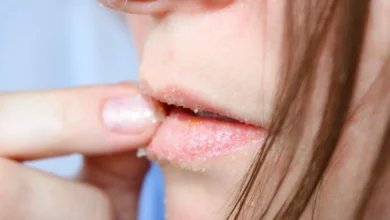Keep It Dry and Clean

Make sure whenever it is, you keep your vagina to stay dry. As you might know, humidity in your private area can increase the chance of harmful bacterial or fungal growth that can lead to some infections or vaginal discharge. In addition, it can change the odor of your private area, which could entirely affect your whole body’s fitness. Also don’t stay in wet clothes (swimwear).
Use toilet paper the right way
Do you use toilet paper from back to front after going to the toilet? Or do you wipe from front to back? Women should use toilet paper from front to back. Otherwise, you will bring bacteria from your anus into your urinary tract.
This can lead to infections such as cystitis, usually caused by E. coli bacteria in the gastrointestinal tract . If these infections are complicated, the bacteria can travel up to the kidneys. Therefore, it is important to prevent problems through good genital hygiene.
And it is essential to clean the perineal area from front to back so as not to drag germs from the anus to the vulva.
Foods to Eat + Avoid

So, the next tip you should know is foods to avoid and eat, which is as important as what you put on the outside, which can cause pleasing odor.
Food To Eat :
Starting with pineapple chunks, it has been known that they can actually change how your body produces odor and taste. Also, the nutrients and enzymes found in pineapple are excellent for your skin. So it is a win-win. Another alternative you can get is cranberries.
Something you also definitely need is a lot of water. Did you guys know dehydration can actually cause a change in the smell and overall state of your Mrs. V? So you want to make sure you’re constantly hydrating. It’s also good for your body to stay hydrated and fresh. So make sure you’re drinking water daily.
Food To Avoid:
If you want to prevent odor, I recommend avoiding things like red meats, beans, and high-percent milk.
Do not douch (unless medically prescribed)
Many women feel more hygienic if they do vaginal douching after menstruation or sexual intercourse. However, this practice can worsen vaginal discharge. In addition, these douches eliminate healthy bacteria that protect the vagina against vaginal infection.
Avoid Scenty Body Washes
As much as you love your amazing-smelling body washes. You never want to place this inside your most delicate area because it can really mess up the pH balance, and it will have the opposite effect of making it feel and smell good. I don’t recommend washing your private part with any body wash or anything with fragrance. It is WAY MUCH BETTER to CLEAN the area with warm WATER gently.
But if you do wanna wash your pubic area with a specific product, I have this most recommended feminine wash. I have Summer’s Eve Feminine Wash in my line with a free fragrance cleansing wash designed explicitly for your feminine areas. It is 5 in 1 product. It’s super gentle, smells good but not too much, and is safe for your feminine part. It is also a hypoallergenic soap.
What I do with this it is for sensitive skin. I lather it in my hand or loofah and really clean, Mrs. V and make sure you wash it softly and gently.
Luke Warm – Cool Water

Something that’s also really important when it comes to washing is ensuring that you’re using a water temperature that goes well with the soap and your body.
You never want to make the water too hot; maybe it feels good for the rest of your body. Still, you don’t want anything but lukewarm water or cooler water around your vagina and feminine areas because this will keep the balance neutral, preventing any odor, abnormal discharge, or anything like that.
On The Go
As a girl, I think it’s essential always to bring some hygienic stuff in your bag. I used to get some panties, tampons or pads, and wipes. So whenever my period hits me or has a minor incident that makes my private area wet or uncomfortable, I can change it immediately.
These are intimate wipes, soft and gentle witH alcohol and paraben-free. And this is specifically meant for your feminine being.
Change Your Underwear Every Day Minimum
Dr. Lisa Ackerley, Professor of Environmental Health at the University of Salford, England, says underwear should be changed every day without exception and replaced every year. Not washing underpants often enough can cause health problems, such as urinary tract infections and canker sores:
Choosing Breathable Underwear
So speaking with underwear, this is really important to use breathable panties that will always ensure the vagina area stays dry and fresh.
And cotton underwear should be your best friend. The cotton material easily absorbs liquids and is breathable to make the vagina stay dry, fresh, and smell good.
You can choose cotton underwear, but the more breathable your underwear is, the better. It’s easy to keep dry cotton underwear. It is the best way to go.
Extra Tips: try to sleep with no underwear, let your vagina breathe, and get fresh air. You don’t have to go naked when you sleep; you can wear an oversized t-shirt or pajamas.
Recommend Hygiene Panties: We love Fruit to the loom for underwear that is super comfortable, stretchy, and breathable but not covered in lace and itchy and have no room for your most private area.
Washing Your Undergarments Separately
Another tip many girls do not really pay attention to is separating dirty clothes and undergarments when washing them.
You know like your underwear is the first layer that directly touches your sensitive part, and you don’t want the ‘outsider’ from your clothes to go into it. So, make sure you clean it separately, especially if you have fur pets.
And if you have a stain (from a period or some flex) on your panties, you can hand wash them because it is easier to clean them.
Consider Replacing Your Underwear Once Every 6-12 Months

I know it may sound a bit excessive. But Renewing your intimate clothing should be an almost mandatory hygienic habit to avoid any type of health problem.
Despite washing them after using them, they are not able to eliminate all the bacteria from the tissue, and over time, the build-up bacteria would cause excess discharge or distress in your pubic area.
Though the range of 6-12 months itself is actually not a fixed thing, nor is there a fixed guide according to this subject. It’s definitely a good way to give your Intimate area to replace your old enough underwear and give change with new fabric.
Wash Your Hands Before and After Going Into the Washroom

You never know what bacteria or dirt on your hands can lead to bacterial or fungal infections in your private area, so always wash your hand before you go to the bathroom.
Also, you won’t want that bacteria on your most delicate area to transfer to your face, which also can cause breakouts. So make sure to keep clean before and after going to the bathroom. And these days, washing your hand is a must; it is one of the essential hygiene habits to stay fit.
Take Daily Probiotic
A lack of probiotics can make your floral bacteria growth unbalanced, putting your vagina in horrifying condition (foul smell, excessive vaginal discharge).
To get a probiotic substance, you can generally get it from your everyday diet, but you can also take a probiotic supplement. Keeping your body balanced is key to staying yours in and out fresh.
And It is especially recommended to take probiotics when you are under treatment with certain antibiotics to avoid vaginal candidiasis
Take good care of your genital hygiene during your period
It may sound obvious, but during menstruation, you need to pay extra attention to genital hygiene. In addition to managing the smell that usually accompanies menstruation, keeps in mind that acidity is also lowered. Low acidity is an ideal scenario for infections to occur.
As mentioned above, it is not necessary to wash the genital area several times a day. However, sanitary napkins and tampons should be changed every 4 to 6 hours.
Be very careful when epilating
When waxing, be careful not to injure yourself. Open wounds invite bacteria and infection. Be careful not to cause irritation when waxing yourself or using other methods.
We also recommend that you do not completely remove pubic hair. In fact, pubic hair protects the genitals from many bacteria, so the absence of such hair increases the risk of developing infections.
Don’t wear tight clothes
Clothing that is tight to the genital area can cause irritation. Constant friction not only makes you feel uncomfortable but can also make you sweat more. This can lead to bacteria and bad odors. This is usually a problem when wearing tight jeans.
If clothing is tight against the body and rubs against the skin, chafing burns or minor cuts can occur, which can lead to infection. A woman’s vulva is usually full of bacteria, but constant friction and humidity increase the risk of infection.
Don’t wash with a sponge
Do not scrub the vulva with a sponge. Sponges are packed with bacteria and should be avoided. Also, the skin in this area is very sensitive, so vigorous rubbing can cause irritation. This can lead to infection later on.
It is recommended to wash the genital area with clean hands. Be careful not to use your fingernails to clean, as this can open wounds and cause infection.




